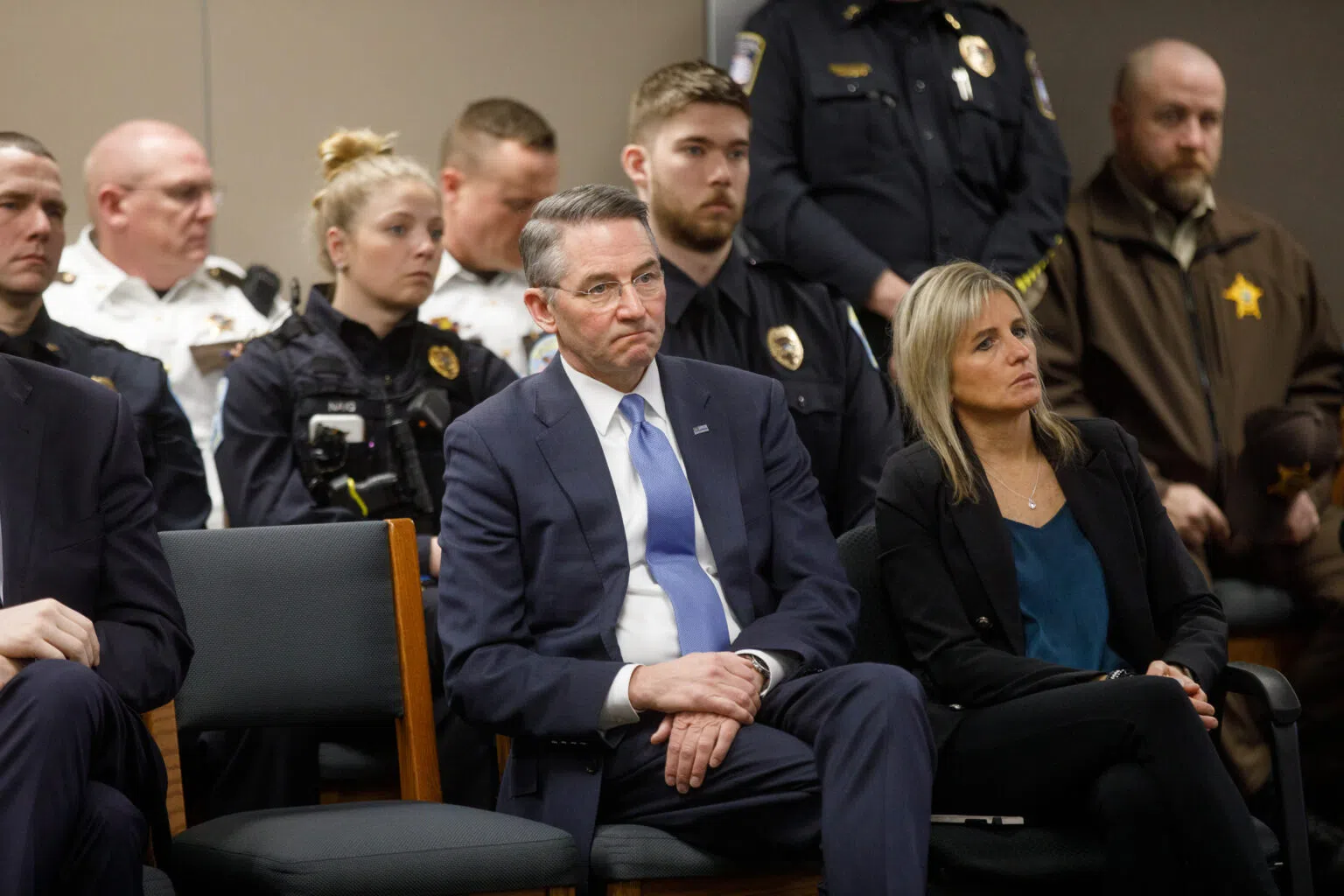
Attorney General Drew Wrigley listens to legislative debate (March 24, 2025, Kyle Martin for the North Dakota Monitor)
BISMARCK, N.D. (NORTH DAKOTA MONITOR) – A divisive prison sentencing bill introduced by Attorney General Drew Wrigley’s office failed in the House Thursday after more than 90 minutes of debate by lawmakers.
Senate Bill 2128 sought to make sure inmates in the state prison system spend most of their sentence in prison. That included a requirement that inmates spend at least half of their sentence in prisons before they can be eligible for a transitional center or parole.
It also contained provisions that would have established steeper penalties for fleeing and assaulting law enforcement.
Earlier this week, the House Judiciary Committee voted 9-5 to forward the bill to House Floor with a do-not-pass recommendation. The House on Thursday rejected an amendment proposed by the committee, which included language giving lawmakers the option to study parole and the state corrections during the upcoming interim session.
“This bill is trying to make too many sweeping changes too quickly,” said Rep. Nels Christianson, R-Grand Forks, who carried the bill on the floor.
Opponents of the bill, which included the head of the North Dakota Department of Corrections and Rehabilitation, have said Wrigley’s proposal would further encumber the state’s already overcrowded prisons. They also said it would have prevented inmates from accessing programs that reduce recidivism and help them prepare for life outside of prison.
“The Attorney General and Department of Corrections and Rehabilitation fundamentally disagree on the facts and the solutions, and we shouldn’t rush to make these sweeping changes to policy with far reaching consequences without having all the facts,” Christianson said.
Proponents of the bill said the proposals would best serve the interests of the public, as well as crime victims.
“We’re talking about the victim here, and the responsibility of the people in blue and brown,” said Rep. Bill Tveit, R-Hazen.
The original bill was estimated to cost the state $22.7 million in the 2025-2027 biennium and another $21.3 million for the 2027-2029 budget cycle.
The Senate in February passed the proposal by a 28-18 vote.




Comments